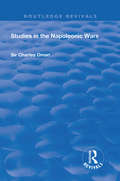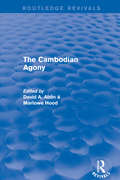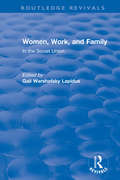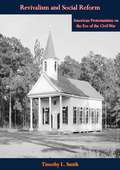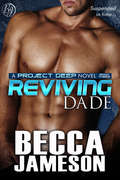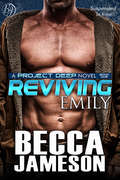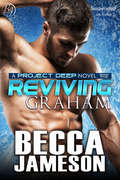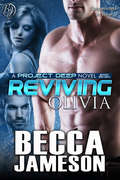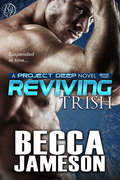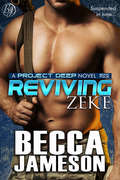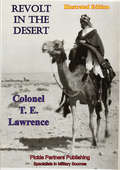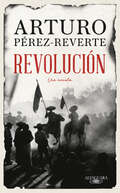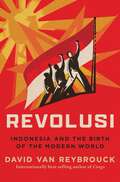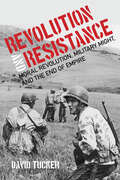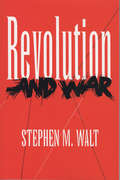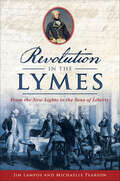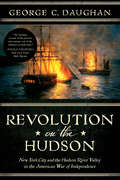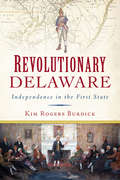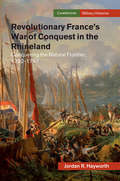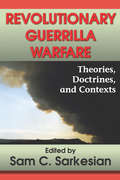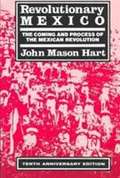- Table View
- List View
Revival: Studies in the Napoleonic Wars (Routledge Revivals)
by Charles OmanThis book presents a general summary of the views on the history of the world held by various historians’ perspective. Rest of the book is derived from author’s main work of 20 years on the Napoleonic period. Narrative includes four stories of the Secret Service that illustrate in different fashions the underworld of political and military intrigue which escapes notice in other general history work. Some of the material included in this book is derived from the study of the British tactics before the Peninsular War and helps to comprehend Duke of Wellington’s methods of warfare with Napoleon and his armies. Discussion is included on Napoleon’s system of using his cavalry as a generalization with a specific study of the handling of the cavalry by his generals in the Spanish War.
Revival: The Cambodian Agony (1990)
by David A. Ablin M. HoodThis title was first published in 1990: Cambodia, it has been said, has gone through the most radical social upheaval and transformation of any country in recorded history. From the overthrow of Prince Sihanouk, who ruled for 29 year, in 1970 to the victory of the Cambodian Communist Party in 1975, Cambodia suffered massive saturation bombing and an unusually violent civil war. It is estimated that half a million people of the seven million total population died. From 1975 to the end 1978 as many as another three million perished because of the brutal policies of the government, and spurred the civil war that has been simmering ever since. In this book, the world's leading experts on Cambodia and the politics of Indochina address the major issues facing Cambodia since the overthrow of the Pol Pot regime in 1978.
Revival: Women, Work and Family in the Soviet Union (Routledge Revivals)
by Gail LapidusThis work reports on the Vietnam war as seen by the GI in the jungles. It discusses current attitudes, views from Saigon, Hanoi and Phnom Penh, and other locales in the countryside.
Revivalism and Social Reform: American Protestantism on the Eve of the Civil War
by Timothy L. Smith“This volume is offered as a ‘new slant on the origins of the social gospel,’ and so it is. Basing his study primarily on material gathered from newspapers, letters and religious and secular weeklies of the period, [Dr. Smith] contends that the heart of the social gospel was present in strong and explicit from in the undertakings of the revivalist of the years 1840-1855. The evangelists of this period played a vital role in preparing the way for the attack on slavery, poverty and greed. This is a real contribution to American religious history, and both general readers and scholars will find it of great interest.”—Kirkus Review“So many historians have tracked the trail of the American revivalists that it is difficult for anyone to discover something new about that trail. Timothy Smith claimed to discover that they were more oriented towards social reform than their critics saw them to be. He backed up, with solid documentation, his claim that they were, in their own way, fathers of the Social Gospel. His book represented one of those rare moments in the study of American church history: the development of an original thesis, one worthy of the argument which it has during the past decade inspired and survived.”—Martin E. Marty
Reviving Bianca (Project DEEP #6)
by Becca JamesonLife has not been kind to Bianca.Childhood abuse has left her cautious. She trusts no one. Especially men. Guarding her emotional and physical scars has been her life’s mission. She went to her deathbed without ever sharing her secrets with anyone. Or so she thought. Waking up from ten years in a cryostat leaves her scared out of her mind. People have seen her scars. The horror of that new reality has her reeling. And worse? She’s been left alone in the care of a man she barely knows. Grayson’s job is to keep Bianca safe and nurse her to health.He’s well aware she has secrets. The welts on her back explain a lot about the private woman. It’s not a surprise that she doesn’t trust him. She doesn’t deserve whatever life has dealt her. He will move mountains to keep her safe and help her heal. As their friendship grows, he gradually breaks down her walls. He’d give anything for her to let him in. But he won’t rush her. Patience is his best option. Bianca believes she is too broken to be loved. Grayson will wait a lifetime to prove her wrong.The books in this series can be read on their own, but readers will enjoy the Project DEEP series more if they are read in order.
Reviving Dade (Project DEEP #3)
by Becca JamesonBlair has the perfect cushy assignment.Protect Dade while he recovers from ten years in a cryostat. In a remote hidden cabin. With plenty of supplies. And nothing but time. But time is Dade’s number one enemy. And Blair can’t seem to maintain her badass persona around him. He’s breaking down her walls. She’s working her ass off to convince him life is worth living. A mole in the government would rather see him dead. An experimental treatment could save him. One he isn’t willing to try. Even when they’re arguing, the chemistry between them is palpable. But now is not the time for romance. Now is the time to fight for his life.
Reviving Emily (Project DEEP #1)
by Becca JamesonIt’s been ten years…For Ryan it’s been the longest ten years of his life. For Emily it’s been days. He spent those ten years developing a cure for the virus she contracted. She spent those ten years in a cryostat, her life suspended. She’s not the only one to be reanimated, but she is the first. The media is surrounding the compound. The religious zealots are picketing. But people have lives to live, and somehow they have to move forward. Ryan still has work to do. People to revive. A disease to cure. Emily has a blank slate. She can go anywhere. Do anything. She can’t stay in the bunker. It casts a pall over everyone. Now is not the time for distractions. Now is not the time to fall in love.
Reviving Graham (Project DEEP #5)
by Becca JamesonGraham Wentz is an introvert. Painfully timid. Or he was. Until he woke up from a ten-year preservation. Now, he finds himself face-to-face with Kate Bauer, a woman he’d once secretly admired from a distance. Empowered with the knowledge that Kate also has eyes for him, Graham finds the confidence to take action. But Kate is hesitant. He’s certain she’s attracted to him, but something is holding her back. Graham is nothing if not patient. After all, his experience with women is extremely limited anyway. They’re living in a new world—one filled with obstacles at every turn. Their entire Project DEEP team is in trouble, as well as three decades’ worth of data. Graham and Kate need to step up to the plate and help the team. Curing diseases is Graham’s life. It’s all he knows. What if Kate decides that path is no longer her priority? Where does that leave the two of them? The books in this series can be read on their own, but readers will enjoy the Project DEEP series more if they read them in order.
Reviving Olivia (Project DEEP #7)
by Becca JamesonOlivia.Cryonically preserved for ten years without her knowledge. Holds the mysterious key that could free everyone. Living on the run with two very tempting men, while hoping more than anything that her past doesn’t compromise her future. Spencer.Computer hacker who escaped the enemy. A skill set that could save the entire DEEP team. Lacking confidence could be his undoing, especially when it comes to the two people he cares about most. Damon.Cryonicist who revived twenty-four souls. Protector of the two lives in his care. Hopeful that he can convince them to be his, and scared to death he might not be enough for them. An unconventional relationship born under duress, in isolation. Can their bond hold true when the dust settles? The books in this series can be read on their own, but readers will enjoy the Project DEEP series more if they are read in order.
Reviving Trish (Project DEEP #2)
by Becca JamesonAfter ten years, life is giving them a second chance…Tushar will do anything to rekindle his marriage.Keeping his wife safe is his number one priority.Hiding in the Mountains of Montana is their best chance at survival.Trish isn’t on the same page.She wants more time with the son she hasn’t seen for ten years.She wants her life back.What if it turns out no place is safe?The sparks that brought them together two decades ago are still burning.Neither is willing to take the risk.But second chances should never be squandered.
Reviving Zeke (Project DEEP #4)
by Becca JamesonZeke is the fifth person to be reanimated after being cryonically preserved for ten years.But he wakes up to a world that resents his very existence.Everything he worked for is in danger of being destroyed.The last thing he needs is a well-meaning scientist with her own agenda.Michelle would rather work with anyone besides the surly scientist she’s been partnered with.The man desperately needs an attitude adjustment.Too bad his penetrating glares also manage to hit a long-buried place inside her.It doesn’t matter because there’s no way she’s going to enter a relationship with a coworker.And after his disastrous marriage, he has no interest in letting any woman get under his skin.Even in their standoff, sparks fly.Eventually they will have to face the truth because curing disease isn’t their only job these days.Staying one step ahead of whoever would rather see them dead is equally important.They need each other, and it would be much easier if they could get along.Even better if they could find a way to let the other into their hearts.
Revolt In Paradise
by K’tut TantriThe true-life adventure of a Western woman who found happiness in Bali, then stayed on in Indonesia to help in the struggle for freedom.The great-granddaughter of a witch from the Isle of Man, the adopted daughter of a Balinese rajah, hostess of one of the most glamorous hotels in the Far East, a prisoner of the Japanese for two horror-packed years and, as Surabaya Sue, an ardent supporter of the Indonesian revolution, K'tut Tantri is well acquainted with the unexpected. Adventure and courage run strong in her blood.It was in a Hollywood movie theater that she first discovered Bali and knew it for the place where she belonged. She had hoped to live and paint there quietly among the island's simple people, but destiny, in the form of a stalled car and a delightful young prince, took a hand and revised her plans. She was formally adopted by the prince's father, and...though she came to know the peasants of the Balinese kampongs, she knew also, and intimately, the life of a Balinese palace with all its ritual and tradition.This world lasted for only a few years. With war come the Japanese, presumably as deliverers overthrowing Dutch rule but in reality as tyrants. K'tut Tantri stayed on to join the underground movement agitating for Indonesian independence, and was eventually captured, imprisoned, tortured. Then with the end of hostilities she chose once again to ally herself with the Indonesians--this time in their resistance against the British and the returning Dutch. A friend of the leaders around Sukarno, she was instrumental in getting the Indonesian story to the outside world, and on several occasions she lent herself to enterprises requiring the combined talents of Mata Hari and T E. Lawrence.K'tut Tantri has an observant eye, an understanding knowledge, and she writes with spirit. Her story is a deeply moving personal drama and a vivid commentary on a period of crucial change in an ancient, romantic country.
Revolt In The Desert [Illustrated Edition]
by Colonel T. E. Lawrence[World War One In The Desert Illustration Pack- Includes 92 photos and illustrations with 19 maps spanning the Desert campaigns 1914-1918]Lieutenant-Colonel T. E. Lawrence has often been pictured as many differing characters; crank, madman, genius, visionary, man “gone native”, pawn, military leader, highly strung, sensitive, arrogant. In fact even in his own writings he is a multi-faceted man of many talents and not a few failings; but what cannot be doubted is the importance of his actions during the First World War at the head of the Arab revolt in the Arabian Desert. At the time the Arabs were loosely affiliated, tribal and disunited; even the most senior Prince Faisal did not command uniform loyalty, and most firmly under the heel of the organized Turks of the Ottoman Empire. With the Turkish declaration of War against the Allies the British set about seeing if they could raise ferment and revolt on the long desert flank of their enemy. They sent the then Lieutenant Lawrence, a bookish classist and archaeologist but with knowledge of the area and the language of the Arabs, to be part of the British Mission. He had suddenly found his element among the Arabs who were captivated by his dashing inspired leadership as he led them from victory to victory over their oppressors. El Orens, as he was known to his men, became front page news in England and around the world, a merciful antidote to the long casualty lists from the mud of Flanders.Lawrence wrote of his experiences with the British military mission first as “The Seven Pillars of Wisdom”, but finding it to be a huge and cumbersome work, with many snap judgements that he had reason to regret, he edited his memoirs to form the more readable “Revolt in the Desert”. The result is a marvellous work filled with the action, hardship and privation of the desert campaigns that made him a legend as Lawrence of Arabia.
Revolución: Una novela
by Arturo Pérez-ReverteLA NUEVA NOVELA DE ARTURO PÉREZ-REVERTE Un hombre, tres mujeres y una revolución. Un viaje al corazón humano y a la aventura. «La etapa creativa que está atravesando Arturo Pérez-Reverte resulta asombrosa. ¿[Revolución es] la mejor novela de Pérez-Reverte? Al menos y sin duda, una de las mejores».Sergio Vila-Sanjuán, La Vanguardia Ésta es la historia de un hombre, tres mujeres, una revolución y un tesoro. La revolución fue la de México en tiempos de Emiliano Zapata y Francisco Villa. El tesoro fueron quince mil monedas de oro de a veinte pesos de las denominadas maximilianos, robadas en un banco de Ciudad Juárez el 8 de mayo de 1911. El hombre se llamaba Martín Garret Ortiz y era un joven ingeniero de minas español. Todo empezó para él ese mismodía, cuando desde su hotel oyó un primer disparo lejano. Salió a la calle para ver qué ocurría y a partir de ese momento su vida cambió para siempre... Revolución es mucho más que una novela sobre los dramáticos acontecimientos que sacudieron la república mexicana en el primer tercio del siglo XX. Es un relato de iniciación y madurez a través del caos, la lucidez y la violencia: el asombroso descubrimiento de las reglas ocultas que determinan el amor, la lealtad, la muerte y la vida. «Toda la vida escuché en mi casa la historia de aquel amigo de mi bisabuelo, ingeniero de minas, que trabajó en México en plena revolución. Ese recuerdo remoto me ha aproximado a mi propia relación con la aventura y me ha llevado a escribir esta historia. Es una novela de iniciación y aprendizaje y es, de algún modo, mi propia biografía de juventud. Es mi Flecha de oro ».Arturo Pérez-Reverte «Un libro de grandes balconajes literarios provisto con las honduras adecuadas para sumergirse en el terreno de la aventura, pero también de los grandes valores, donde los lugares comunes que guardamos sobre el bien y el mal se desvanecen y las líneas habituales que los separa se vuelven grises y confusas.[...] Una narración vertiginosa».Javier Ors, El Debate «Heroísmo, valentía, la seducción ante los abismos del peligro, el coraje, la camaradería, la impronta de situaciones extremas en la idiosincrasia del ser humano… Son los elementos intrínsecos de la literatura épica de Arturo Pérez-Reverte y todos ellos están presentes en Revolución.[...][Un autor] volcánico».David Barreira, El Español «Pérez-Reverte se cruza las cananas al pecho, se deja mostacho, y llega a las librerías al galope con Revolución,[donde] el lector encontrará todos los ingredientes que le han convertido en un superventas mundial».Grego Casanova, Vozpópuli «Algo teata firmemente a un lugar al que has sobrevivido y, aunque el autor ha sobrevivido a varios, en México tuvo que hacerlo a golpe de tequila. Algo se torció en una cantina y solo el destilado apaciguó los ánimos y le permitió llegar a los 71 años que está a punto de cumplir».María Paredes, The Objective «Un clásico vivo. Algunos le han comparado con Dumas o Verne [...]. Su maestría narrativa incluye una perspectiva estoica de la existencia, una trágica conformidad con las leyes de la naturaleza, una celebración de la vida en lo que tiene de juego y riesgo».Rafael Narbona, El Cultural «La etapa creativa que está atravesando Arturo Pérez-Reverte resulta asombrosa. ¿[Revolución es] la mejor novela de Pérez-Reverte? Al menos y sin duda, una de las mejores».Sergio Vila-Sanjuán, La Vanguardia «Una historia fiel a sus constantes».José María Pozuelo Yvancos, ABC
Revolusi: Indonesia and the Birth of the Modern World
by David Van ReybrouckFrom the internationally best-selling writer, a masterful account of the epic revolution that sparked the decolonization of the modern world. On a sunny Friday morning in August 1945, a handful of people raised a homemade cotton flag and, on behalf of 68 million compatriots, announced the birth of a new nation. With the fourth largest population in the world, inhabiting islands that span an eighth of the globe, Indonesia became the first country to rid itself of colonial rule after World War II. In this vivid history, renowned scholar and celebrated author of Congo David Van Reybrouck captures a period of extraordinary tumult and chaos to tell the story of Indonesia’s momentous revolution, known as the “Revolusi.” Encompassing several hundred years of history, he details the formation of the Dutch East Indies, the Japanese invasion that followed, and the young rebels who engaged in armed resistance once the occupation ended. British and Dutch troops were sent to restore order and keep peace, but instead ignited the first modern war of decolonization. America, too, became embroiled with the Indonesians’ fierce struggle for freedom. That struggle inspired independence movements in Asia, Africa, and the Arab world, especially in the wake of Indonesia’s monumental 1955 Bandung Conference, the first global conference without the West. The whole world had become involved in Revolusi, and the whole world was changed by it. Drawing on hundreds of interviews and eyewitness testimonies, David Van Reybrouck turns this vast and complex story into an utterly gripping narrative, written with remarkable historical clarity and filled with tragedy and passion. A landmark history, Revolusi cements Indonesia’s struggle for independence as one of the defining dramas of the twentieth century and entirely reframes our understanding of post-colonialism.
Revolution and Change in Central and Eastern Europe: Political, Economic and Social Challenges
by Minton F. GoldmanHow this bloc of countries developed during the twentieth century.
Revolution and Resistance: Moral Revolution, Military Might, and the End of Empire
by David TuckerWestern imperialism has always been shadowed by terrorism and insurgency.In this provocative history, David Tucker argues that "irregular warfare"—including terrorism, guerrilla warfare, and other insurgency tactics—is intimately linked to the rise and decline of Euro-American empire around the globe. Tracing the evolution of resistance warfare from the age of the conquistadors through the United States’ recent ventures in Afghanistan and Iraq, Revolution and Resistance demonstrates that contemporary conflicts in the Middle East, Africa, and Asia are simply the final stages in the unraveling of Euro-American imperialism. Tucker explores why it was so difficult for indigenous people and states to resist imperial power, which possessed superior military technology and was driven by a curious moral imperative to conquer. He also explains how native populations eventually learned to fight back by successfully combining guerrilla warfare with political warfare. By exploiting certain Euro-American weaknesses—above all, the instability created by the fading rationale for empire—insurgents were able to subvert imperialism by using its own ideologies against it. Tucker also examines how the development of free trade and world finance began to undermine the need for direct political control of foreign territory.Touching on Pontiac’s Rebellion of 1763, Abd el-Kader’s jihad in nineteenth-century Algeria, the national liberation movements that arose in twentieth-century Palestine, Vietnam, and Ireland, and contemporary terrorist activity, Revolution and Resistance shows how changing means have been used to wage the same struggle. Emphasizing moral rather than economic or technological explanations for the rise and fall of Euro-American imperialism, this concise, comprehensive book is required reading for anyone seeking to understand the character of contemporary conflict.
Revolution and Resistance: Moral Revolution, Military Might, and the End of Empire
by David TuckerThis exploration of the links between imperialism and insurgency is “a reliable introduction to a complex subject” (Dennis E. Showalter, coauthor of If the Allies Had Fallen).In this provocative history, David Tucker argues that “irregular warfare”—including terrorism, guerrilla warfare, and other insurgency tactics—is intimately linked to the rise and decline of Euro-American empire around the globe. Tracing the evolution of resistance warfare from the age of the conquistadors through the United States’ recent ventures in Afghanistan and Iraq, Revolution and Resistance demonstrates that contemporary conflicts in the Middle East, Africa, and Asia are simply the final stages in the unraveling of Euro-American imperialism.Tucker explores why it was so difficult for indigenous people and states to resist imperial power, which possessed superior military technology and was driven by a curious moral imperative to conquer. He also explains how native populations eventually learned to fight back by successfully combining guerrilla warfare with political warfare. By exploiting certain Euro-American weaknesses—above all, the instability created by the fading rationale for empire—insurgents were able to subvert imperialism by using its own ideologies against it. Tucker also examines how the development of free trade and world finance began to undermine the need for direct political control of foreign territory.Touching on Pontiac’s Rebellion of 1763, Abd el-Kader’s jihad in nineteenth-century Algeria, the national liberation movements in twentieth-century Palestine, Vietnam, and Ireland, and contemporary terrorist activity, this book shows how changing means have been used to wage the same struggle. Emphasizing moral rather than economic or technological explanations for the rise and fall of Euro-American imperialism, this concise, comprehensive book is required reading for anyone seeking to understand the character of contemporary conflict.
Revolution and War
by Stephen M. WaltRevolution within a state almost invariably leads to intense security competition between states, and often to war. In Revolution and War, Stephen M. Walt explains why this is so, and suggests how the risk of conflicts brought on by domestic upheaval might be reduced in the future. In doing so, he explores one of the basic questions of international relations: What are the connections between domestic politics and foreign policy?Walt begins by exposing the flaws in existing theories about the relationship between revolution and war. Drawing on the theoretical literature about revolution and the realist perspective on international politics, he argues that revolutions cause wars by altering the balance of threats between a revolutionary state and its rivals. Each state sees the other as both a looming danger and a vulnerable adversary, making war seem both necessary and attractive. Walt traces the dynamics of this argument through detailed studies of the French, Russian, and Iranian revolutions, and through briefer treatment of the American, Mexican, Turkish, and Chinese cases. He also considers the experience of the Soviet Union, whose revolutionary transformation led to conflict within the former Soviet empire but not with the outside world. An important refinement of realist approaches to international politics, this book unites the study of revolution with scholarship on the causes of war.
Revolution in the Lymes: From the New Lights to the Sons of Liberty (Military)
by Jim Lampos Michaelle PearsonThe Revolutionary War in the Lymes started as a rebellion of ideas. From its origins in the Cromwellian Saybrook Colony, Lyme (today's Lyme, Old Lyme, East Lyme and Salem) prospered under the free hand of self-governance and spurned King George III's efforts to rein in the wayward colonies. In 1765, Reverend Stephen Johnson wrote incendiary missives against the Stamp Act. A few years later, the town hosted its own Tea Party, burning one hundred pounds of British tea near the town green. When the alarm came from Lexington in 1775, Lyme's citizens were among the first to answer. Historians Jim Lampos and Michaelle Pearson explore how local Patriots shaped an epic revolt.
Revolution on the Hudson: New York City And The Hudson River Valley In The War Of American Independence
by George C. DaughanThe untold story of the fight for the Hudson River Valley, control of which, both the Americans and the British firmly believed, would determine the outcome of the Revolutionary War. No part of the country was more contested during the American Revolution than New York City, the Hudson River, and the surrounding counties. Political and military leaders on both sides viewed the Hudson River Valley as the American jugular, which, if cut, would quickly bleed the rebellion to death. So in 1776, King George III sent the largest amphibious force ever assembled to seize Manhattan and use it as a base from which to push up the Hudson River Valley for a grand rendezvous at Albany with an impressive army driving down from Canada. George Washington and every other patriot leader shared the king's fixation with the Hudson. Generations of American and British historians have held the same view. In fact, one of the few things that scholars have agreed upon is that the British strategy, though disastrously executed, should have been swift and effective. Until now, no one has argued that this plan of action was lunacy from the beginning. Revolution on the Hudson makes the bold new argument that Britain's attempt to cut off New England never would have worked, and that doggedly pursuing dominance of the Hudson ultimately cost the crown her colonies. It unpacks intricate military maneuvers on land and sea, introduces the personalities presiding over each side's strategy, and reinterprets the vagaries of colonial politics to offer a thrilling response to one of our most vexing historical questions: How could a fledgling nation have defeated the most powerful war machine of the era? George C. Daughan--winner of the prestigious Samuel Eliot Morrison Award for Naval Literature--integrates the war's naval elements with its political, military, economic, and social dimensions to create a major new study of the American Revolution. Revolution on the Hudson offers a much clearer understanding of our founding conflict, and how it transformed a rebellion that Britain should have crushed into a war they could never win.
Revolutionary Delaware: Independence in the First State (Military)
by Kim Rogers BurdickIn 1776, Delaware declared independence from both England and Pennsylvania. Originally known as the Three Lower Counties of Pennsylvania, the First State was instrumental in the fight to form a new republic. The Marquis de Lafayette, Nathanael Greene and George Washington all made trips to the state. Caesar Rodney's ride and the Battle of Cooch's Bridge are legendary, but the state has many unsung heroes. Citizens from every village, town, crossroads and marsh risked their lives to support their beliefs. Author Kim Burdick offers the carefully documented story of ordinary people coping with extraordinary circumstances.
Revolutionary France's War of Conquest in the Rhineland: Conquering the Natural Frontier, 1792-1797 (Cambridge Military Histories)
by Jordan R. HayworthIn May 1790, the French National Assembly renounced wars of conquest. Two years later, France declared war on Austria and invaded Belgium and the Rhineland, claiming it was to spread the benefits of the Revolution. Soon, however, military and economic crises drove a shift in the nature of France's war effort. What started as a war for liberty became a war for conquest, one that brought devastating exploitation to the Rhineland. It was during this time that French foreign policy became influenced by the idea of attaining the natural frontiers - the Alps, the Pyrenees, and, most significantly, the Rhine. Although often portrayed as a diplomatic tradition of the French monarchy, Jordan R. Hayworth shows how the natural frontiers policy was born during the Revolution. In addition, he examines the intense and consequential debates that arose over the policy, which caused much confusion in the war and helped to undermine France's democratic experiment.
Revolutionary Guerrilla Warfare: Theories, Doctrines, and Contexts
by Sam C. Sarkesian'Revolution' is a word that causes fear in some, exhilaration in others, and confusion in most. Originally used to describe a restoration, it eventually came to mean a sweeping, sudden attack on an existing order. Human history has borne witness to a variety of national and social revolutions - population revolution, revolution of ideas, technological revolution, and revolution in education. Simultaneously, there has been a proliferation of literature on revolution, armed struggle, and violence aimed at unseating policies and leadership of governments and societies.Revolutionary struggles are more than simply armed internal conflict; they involve the essence of the political system. The desire to make such phenomena understandable often leads to oversimplification. Attempts to encompass their multi-dimensional nature, on the other hand, can become immersed in complexities, ambiguities, and misinterpretations. The perspective of this classic volume, available in paperback for the first time, is that revolution is here to stay. Guerrilla warfare, according to Sarkesian, is a particularly useful strategy for the weak, the frustrated, the alienated, and seekers of power against existing regimes. The collected works in this volume examine the social roots of revolution, development of strategy and tactics, practice in city and countryside, dilemmas of attackers and defenders.The actors and thinkers collected and analyzed here range from leading political analysts, anthropologists, sociologists, historians, and officials as well as practitioners of guerrilla warfare. This core text with primary sources in the area of war, revolution, and insurgence develops an understanding of revolution, traces the growth of guerilla doctrine, and studies the specifics of revolutionary and counterrevolutionary guerilla warfare.
Revolutionary Mexico: The Coming and Process of the Mexican Revolution
by John Mason HartThis acclaimed reinterpretation of the Mexican Revolution, based on new evidence obtained in Mexican and American archives and on the historical literature of recent years, is available here in the tenth anniversary edition, complete with a new Preface by the author.
